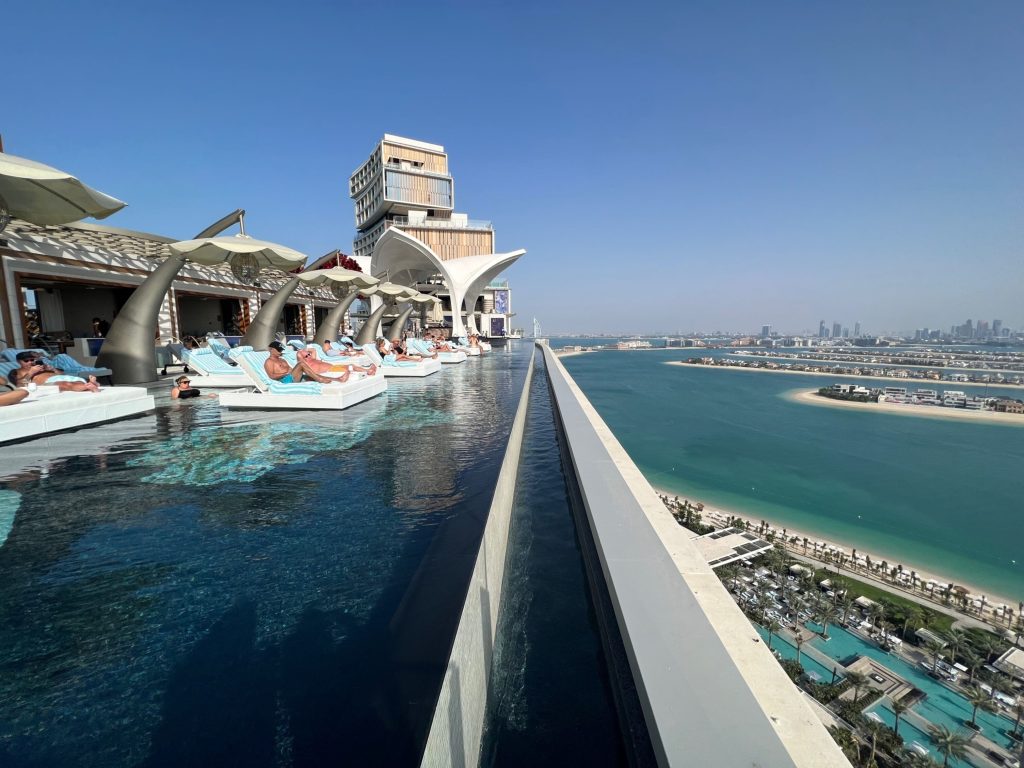The 94-room Belmond Hotel Cipriani has a storied history. It was opened in the 1950s by the inventor of the Bellini, with a bar that continues to be legendary to this day. It has an Olympic-sized outdoor swimming pool at the edge of the Canale di San Giorgio Maggiore, apparently the result of confusion between feet and meters during construction. And on Thursday it was named the best hotel in the world by a new list that gives properties a composite score based on information that’s compiled from a wide array of sources.
The list, called Top 1 000 World’s Best Hotels, is by French company La Liste. Its rankings are not a result of a judging panel that conducts in-person visits, but rather a compilation of customer ratings on booking websites, published reviews from travel magazines, global and local media coverage, as well as other travel guides. It’s a similar format and methodology as what the company uses to produce the namesake global restaurants list for which it’s best known.
Helene Pietrini, managing director of La Liste, said she saw a gap in the market for a resource that pulls together various reviews into one place that travelers can scroll through to get their imagination going.
“People love to be inspired with hotels ranked from the best to—not the worst, but all the great hotels in the world,” she said in an interview. “They want to see a longer list of great places to go to, not always the most expensive.” Sustainability and uniqueness are more important to some consumers than luxury, she added, which is in part why some specific hotels are pulled out and highlighted.
La Liste joins a crowded field of rankings and guides for travelers—though few have tackled hotels specifically. Other rankings, for instance, offer insight on the world’s best destinations, restaurants, bars and airlines. Even Michelin began as a travel guide, scoring eateries for road trippers criss-crossing Europe.
But La Liste will soon gain important competition: In September, 50 Best will release its own inaugural hotel ranking to complement its influential lists of the World’s Best Restaurants and Bars. (Pietrini used to work at 50 Best.)
The publications usually make money through sponsorships with culinary or beverage brands, credit-card and travel-related companies. The Michelin Guide, 50 Best and others also take money from municipalities, states or publicly funded tourism agencies, who wish to promote and lend credibility to their local dining scenes. La Liste doesn’t yet have any government sponsors, but it’s not opposed to the idea, Pietrini said. In one of the more creative uses of its rankings, La Liste has a global partnership with Hyundai, which incorporates the recognized restaurants into its GPS navigation system and flags them with a little chef’s hat.
The hotels selected by La Liste heavily skew luxury, with at least 80 properties under the Four Seasons brand showing up in the top 1,600. Most are in the US, followed by Italy, France and the UK. The Peninsula Chicago was the top American hotel on the list, another example of city hotels edging out resorts that are destinations unto themselves. In the future, the company might add more affordable hotels or guest homes to an extended list, Pietrini said.
Alongside the list is a set of special honors decided upon by La Liste staff members, who aren’t required to visit the properties but use their own judgment to spot trends, cross-reference sources and chat with their contacts in the industry. It gave four hotels awards for ethics and sustainability, including Bambu Indah in Bali and Six Senses Shaharut in Israel. New arrivals awards for those opened in the past year went to Atlantis the Royal in Dubai, the Peninsula in Istanbul, Capella in Sydney and others.
On the best hotels list, the scoring system resulted in many ties, with 20 hotels sharing the No. 5 spot. They include the Bulgari Hotel in Dubai, the Rosewood in London, the Baccarat Hotel in New York and the Banyan Tree Mayakoba in Mexico—all with 98 out of 100 points.
“It is quite true that hotels are less polarizing than restaurants,” she said. “We had that comment internally that scores were very, very close to each other in the hotel database, a bit more than in the restaurants one.”
But one hotel stood out as the sole No. 1, Pietrini said, repeatedly coming out on top as they were testing and tweaking the algorithm: Hotel Cipriani. It narrowly beat out the hotels tied for No. 2, with a score of 99.75 edging out the others at 99.5.
Pietrini visited the hotel to have a look for herself. “I totally understand why it is unanimously positively reviewed by all the sources,” she said. “It’s a legendary, iconic hotel. You can really feel the history in each detail of the property. It’s a hotel with a story.”
Here’s a look at the best hotels in every continent, according to La Liste:
Africa
Royal Mansour Marrakech, in Morocco, and One&Only Le Saint Géran in Mauritius (tied)
Asia
The Peninsula in Shanghai and the Oberoi Udaivilas in Udaipur, India (tied)
Europe
Belmond Hotel Cipriani in Venice, Italy
North America
The Peninsula in Chicago and the Waldorf Astoria in Cabo San Lucas, Mexico (tied)
Oceania
The St. Regis Bora Bora Resort in French Polynesia and Matakauri Lodge in New Zealand (tied)
South America
Hotel das Cataratas in Iguassu Falls, Brazil
© 2023 Bloomberg

